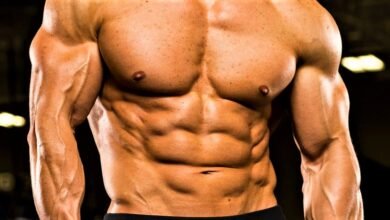Isotonic lemon and honey drink

Isotonic lemon and honey drink
During physical activity, we lose large amounts of water, besides, we lose, among other things, sodium and potassium, which are necessary for maintaining shape and well-being. The amount of these losses depends on: the intensity and length of exercise, the temperature and humidity of the environment as well as the individual changes of each person. If you don’t make up for these losses, you could become dehydrated, which negatively affects your performance and health. So what would you choose to prevent this from happening?
There are 3 types of sports drinks: hypotonic, isotonic, and hypertonic.
1. Hypotonic
Hypotonic fluids are low in osmolarity, which means they contain fewer carbohydrates and electrolyte particles/100mL of body fluids. It is absorbed faster than pure water, but worse than isotonic drugs, and in its composition you can find <4 g of carbohydrates / 100 ml. We often drink low-stress beverages as desired before or during physical activity. If it’s lemon water and a little honey or diluted 100% orange juice with no added sugar and we don’t have extra kilos, why not. However, when our goal is to re-educate body mass, and we are not professional athletes who train multiple times a day, remember that mineral water would be a better option for us. In fact, it is a waste of money and sometimes a waste of health (shopping drinks can contain unnatural dyes and preservatives) to buy colored drinks.
2. Isotonic
The most prevalent on the market, and the easiest available. Isotonic drinks have the same osmolality as body fluids. As a result, its absorption is faster than that of water. The sugar content of these liquids ranges between 4-8g/100ml. Recommended for people who train intensely and whose training lasts more than one hour. They lose large amounts of sweat and electrolytes, which are often impossible to replenish with water or may lead to hyponatremia. However, colorful variations with different flavors and markings are not always as good as you might think. When choosing an isotonic drink, carefully read the composition of the product. Dyes and preservatives can be harmful, even causing allergic reactions. Supplement additives like l-carnitine, glutamine and CLA are a good marketing tactic and if they don’t hurt us, unfortunately they won’t help either, because their concentration is too small to cause any effect.
3. Hypertonic
Hypertonic drinks have a higher osmolality compared to body fluids. They contain more carbohydrates and electrolytes / 100 ml compared to body fluids, so they are absorbed into the body more slowly compared to water. The carbohydrate content of these types of drinks is usually greater than 8 g / 100 ml. You can use them immediately after intense physical exercise in the carbohydrate window. Then the body needs energy in the form of carbohydrates, which is worth eating in the form of a post-workout meal, but it’s often easier to reach for a hypertonic drink. As is usually the case, what is convenient is usually not good for us. Therefore, these drinks are not particularly recommended and are certainly not necessary. They definitely bring in less vitamins, minerals and protein needed after training than a balanced meal after exercise. In addition, people who want to lose some unnecessary kilograms should not reach them, so that they are not accustomed to sipping sweet soft drinks or juices. It is best to prepare a cocktail from skim milk, cottage cheese, oatmeal and fresh fruits that will provide protein, carbohydrates and vitamins, thanks to which they will nourish and saturate our body at the same time for the next few hours.
In short, if you’ve been training intensely or experience drops in energy during training that prevent you from going to your full potential, stick to an isotonic drink. It is better if it is the most natural isotonic possible, and you can make it yourself. It will be delicious, cheap, and without any artificial additives. Below we have prepared three presentations of isotonic drinks at home for you.
1. Isotonic lemon and honey drink
Expression:
• water – 1000 ml
• honey – 2 tablespoons (70 g)
• lemon juice – ½ lemon
• salt – half a teaspoon
Squeeze the lemon juice. Combine all ingredients and mix well until honey dissolves.
2. Isotonic apple and mint drink with magnesium
Description:
• apple juice – 3 apples
• lemon juice – half a lemon
• honey – 1 teaspoon (14 grams)
• natural mint infusion – 500 ml
• 1 effervescent magnesium tablet
• salt – 1/2 teaspoon
The juice should be 100% without added sugar. Mix it with lemon juice, mint soak and honey, put it in an effervescent tablet and set it aside for a few hours. This isotonic version is ideal for training on hot days, and cooling the body.
3. Isotonic iced tea
Expression:
• Tea without sugar (fermented and cooled) – 1000 ml
• Lemon / lime – ½ lemon / lime
• Honey – 2 tablespoons (70 g)
• Salt – 1/3 teaspoon
You can have an isotonic drink with you in the gym.



